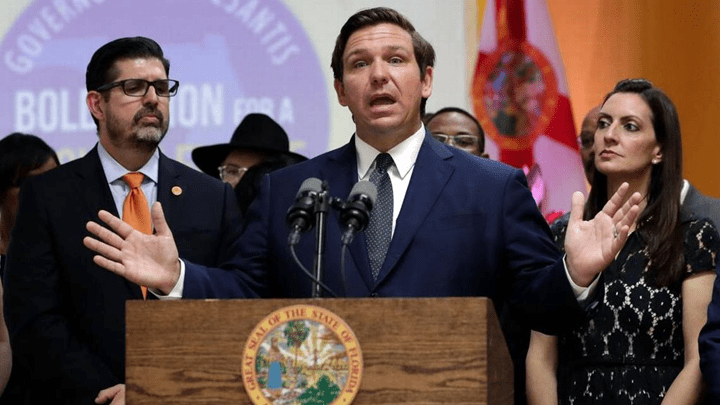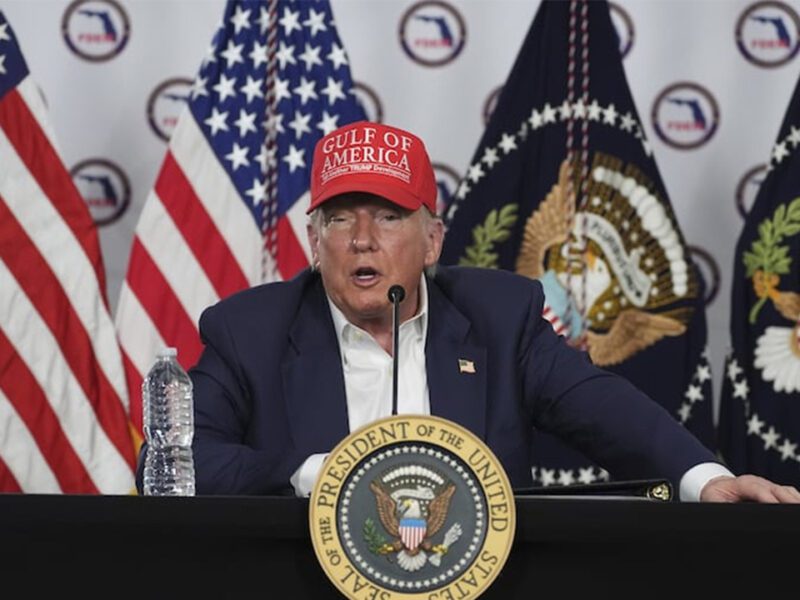
Florida further limits instruction on sexual orientation
Miami Herald | By Ana Ceballos | Updated April 20. 2023
TALLAHASSEE
The State Board of Education on Wednesday voted to bar Florida middle-school and high-school teachers from “intentionally” teaching students about sexual orientation or gender identity unless the lessons are part of a reproductive health course or are “expressly required” by the state’s academic standards.
Teachers who do otherwise could be suspended or their teaching licenses could be revoked.
Education Commissioner Manny Diaz, the head of the Florida Department of Education, said the rule is meant to “provide clarity” to teachers about what they can and cannot teach about those topics.
The new rule goes beyond the state’s Parental Rights in Education law — dubbed by critics as “don’t say gay” — which prohibits classroom instruction on sexual orientation and gender identity in kindergarten through third grade and older grades in cases when the lessons are deemed to be not “age appropriate.”
It would also go beyond what Republican legislative leaders have proposed during the 2023 legislative session: extending classroom restrictions on those topics through eighth grade.
The Parental Rights in Education law, which Gov. Ron DeSantis signed last year, has already led some teachers to question whether certain conversations are appropriate as classroom lessons as LGBTQ issues come under intense scrutiny from some Republican lawmakers and conservative parents and groups.
Shortly after the law went into effect, the State Board of Education invoked it to crack down on school policies that impact LGBTQ issues, including bathroom use and protections for students who confide personal information to school employees about their sexual orientation and gender identity. In other instances, school districts have rolled back other policies because of the law. Pasco County schools, for example, cited the law when it banned “safe space” stickers that show support for LGBTQ students.
The law was also the impetus for an ongoing feud between DeSantis and Disney, which issued a statement last year in opposition to the restrictions.
While the law has had an impact on some LGBTQ policies in some districts, supporters of the restrictions say the law is aimed at classroom instruction not conversations about those topics when they naturally come up.
Critics, however, worry the rule will further confuse teachers and that its broad language will leave many lessons up for interpretation.
Joe Saunders, the senior political director for Equality Florida, asked during public comment if 11th graders would be allowed to learn about the landmark Supreme Court decision on same-sex marriage.
Diaz said teachers would be allowed to cover that Supreme Court ruling. But he said, there would be a difference between “talking about Supreme Court cases and taking that and then going into something else that is subjective and trying to expand on that.”
The Florida Department of Education is revising the state’s civics academic standards and textbooks. The standards would need to be followed by teachers in order to comply with requirements regarding discussion of sexual orientation and gender identity.
Several women with the conservative group Moms for Liberty spoke in support of the bill, saying it will encourage discussions on those topics to happen at home not in school. As a result, they argued, the rule will strengthen relationships between students and their parents.
When the rule was first proposed a month ago, DeSantis’ office signaled support for the crackdown.
“There is no reason for instruction on sexual orientation or gender identity to be part of K-12 public education. Full stop, ” DeSantis’ press secretary Bryan Griffin said at the time.
The rule would go into effect in 34 days at the earliest, giving schools and teachers some time to prepare for the changes.





